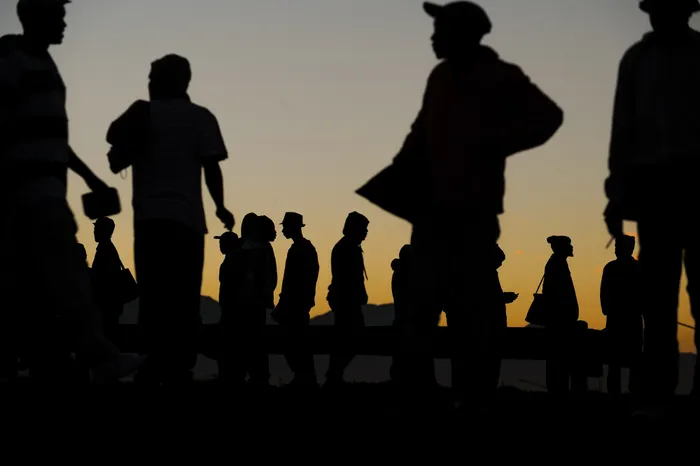Why South Africa's R700 million National Dialogue won't solve youth unemployment

DESPITE clear challenges facing South Africa like rampant youth unemployment, deepening inequality, crime, and a failing economy, the government still insists on a multimillion rand national dialogue.
Image: Henk Kruger/Independent Newspapers
As an activist who works directly with young people, I’ve seen firsthand the heartbreak and frustration that unemployment causes. Every day, I listen to young graduates with no job prospects, informal traders struggling to scale, and young minds with brilliant ideas but limited access to funding.
So when I hear that R700 million is being allocated to a National Dialogue, I can’t help but ask: is this really what South Africa needs right now? There are more than 8 million unemployed young people in this country. That number isn’t just a statistic—it’s a sign of deep social failure. We are sitting on a ticking time bomb, and the government’s answer is to talk?
Dialogue in principle is not a bad thing. In a society still scarred by division and inequality, talking to each other is necessary. But dialogue alone does not change the material conditions of people’s lives. Talking doesn’t put food on the table. It doesn’t create jobs. It doesn’t fix broken infrastructure or fund small businesses.
And it certainly doesn’t justify spending nearly three-quarters of a billion rand in a country where young people are starving for opportunity. The R700 million cost is not small change. It could fund 70,000 learnerships at R10,000 each - giving young people valuable skills, experience, and a chance to enter the formal economy. It could provide R20,000 micro-grants to over 35,000 youth-led startups, spurring township economies and cutting youth dependency on social grants.
That money could be used to scale digital skills programs, agricultural projects, artisan training, or green energy initiatives - all sectors with the potential to absorb youth and create sustainable employment. But instead, that money is being poured into venues, catering, travel, consultancy fees, and bureaucratic processes. All for a conversation.
Young people are tired of being told their voices matter, while no one listens to their cries for jobs and dignity. We’ve attended the youth summits. We’ve sat in roundtable discussions. We’ve made submissions to policy documents that no one reads. And nothing changes. We don’t need another conference. We need commitment. Action. Budgets that reflect our reality, not political posturing. Let me be clear: we are not asking for handouts. We are asking for investment. We are asking to be equipped to drive our development.
Every day, young people are launching businesses, running coding workshops, setting up farming cooperatives, creating art, and building apps. But without support, these efforts burn out. What we need is access - access to funding, markets, tools, and mentorship. The real tragedy is not that we lack ideas; it is that we fail to implement them. It’s that the government doesn’t trust us enough to invest in them. If R700 million were placed in a youth innovation fund, administered by young people for young people, we’d see immediate results. Imagine community centres turned into business hubs. Empty municipal buildings repurposed into training facilities. Peer-led mentorship programs in every township and rural district. This is not a fantasy.
It is a possibility, if priorities are set right. The gap between government and the youth is not just economic, it’s moral. It’s about trust, dignity, and respect. When money is constantly spent on events and bureaucracy while students sleep in libraries and informal workers get harassed by police, it tells us exactly where we stand: nowhere near the top. A national dialogue, in theory, sounds noble. But in a country facing a youth unemployment crisis of over 60%, any initiative not directly creating jobs or building pathways into employment must be questioned. Talking is not the problem. The problem is inaction. The problem is misplaced spending. The problem is a government that is more comfortable performing empathy than practising it.
R700 million could change lives. It could light up rural communities with business activity. It could turn informal traders into formal employers. It could make learnerships more accessible to millions who are currently excluded from the system. Instead, it’s being funnelled into a process that has no guarantee of tangible outcomes. At this point, young people don’t want to be included in dialogues-they wish to be included in budgets. To empower youth, fund their futures. Don’t invite them to another table where the agenda has already been written. Don’t ask them to speak while you’ve already decided what you’re going to do.
We are not anti-dialogue. We are anti-waste. We are anti-symbolism without substance. If this National Dialogue cannot lead to immediate, job-creating action, then it is not worth the cost. If you genuinely want to change lives, stop hosting summits and start funding solutions. The youth of South Africa have waited long enough. We are not lazy. We are not entitled. We are ready. But we are also tired, tired of empty promises dressed up as progress. This is not a call for more words. It’s a call for choices that put people first. And that begins by asking a simple question: if you had R700 million and 8 million unemployed young people, would you talk, or would you act?
*Mayalo is an independent writer and the views expressed here are not necessarily those of IOL and Independent Media